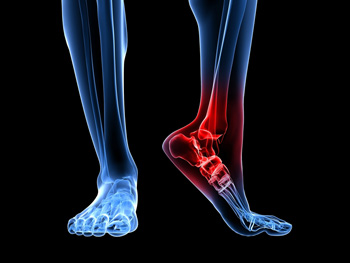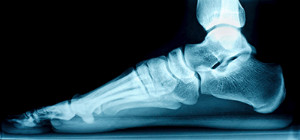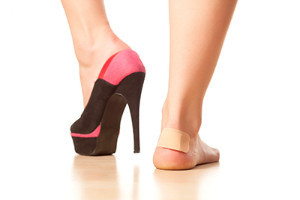August 2021
Can Foot Pain Be Avoided During Pregnancy?
 Swollen feet are a common ailment among pregnant women. As their belly grows so does the baby, and with this the feet tend to become bigger. This may be a result of thickened blood that develops during pregnancy, in addition to standing on the feet for most of the day. Research has indicated there are several different things that can be done to help alleviate foot pain during pregnancy. It is beneficial to elevate the feet as often as possible, as this may help to reduce existing swelling. Additionally, it can help to flex and point the feet at various times during the day to help improve circulation. Patients may see a noticeable difference in choosing shoes that are wide and have a low heel. Wearing cotton socks can help to avoid sweating and may improve comfort. If you would like more information about how to avoid foot pain during pregnancy, please consult with a podiatrist.
Swollen feet are a common ailment among pregnant women. As their belly grows so does the baby, and with this the feet tend to become bigger. This may be a result of thickened blood that develops during pregnancy, in addition to standing on the feet for most of the day. Research has indicated there are several different things that can be done to help alleviate foot pain during pregnancy. It is beneficial to elevate the feet as often as possible, as this may help to reduce existing swelling. Additionally, it can help to flex and point the feet at various times during the day to help improve circulation. Patients may see a noticeable difference in choosing shoes that are wide and have a low heel. Wearing cotton socks can help to avoid sweating and may improve comfort. If you would like more information about how to avoid foot pain during pregnancy, please consult with a podiatrist.
Pregnant women with swollen feet can be treated with a variety of different methods that are readily available. For more information about other cures for swollen feet during pregnancy, consult with Eveleigh Williams, DPM from Sole 2 Sole, PC. Our doctor will attend to all of your foot and ankle needs.
What Foot Problems Can Arise During Pregnancy?
One problem that can occur is overpronation, which occurs when the arch of the foot flattens and tends to roll inward. This can cause pain and discomfort in your heels while you’re walking or even just standing up, trying to support your baby.
Another problem is edema, or swelling in the extremities. This often affects the feet during pregnancy but tends to occur in the later stages.
How Can I Keep My Feet Healthy During Pregnancy?
- Wearing orthotics can provide extra support for the feet and help distribute weight evenly
- Minimize the amount of time spent walking barefoot
- Wear shoes with good arch support
- Wear shoes that allow for good circulation to the feet
- Elevate feet if you experience swelling
- Massage your feet
- Get regular, light exercise, such as walking, to promote blood circulation to the feet
If you have any questions please feel free to contact our office located in Olympia Fields, IL . We offer the newest diagnostic and treatment technologies for all your foot and ankle needs.
A Common Cause of Adult Acquired Flatfoot
Adult acquired flatfoot is a condition where the arch of the foot flattens or completely collapses. Although there is not one definitive cause for acquired flatfoot in adults, many consider posterior tibial tendon dysfunction (PTTD) as a common contributing factor. The posterior tibial tendon is a string of tissue that connects the bones on the inside of the foot with the back of the calf. It is responsible for maintaining the arch and supporting the foot while walking. Overuse of this tendon sometimes causes it to become inflamed, torn, or otherwise injured. This painful condition is progressive and eventually may lead to the arch falling and the ankle rolling inwardly. Left untreated, the tendon may further deteriorate and arthritis may develop in the foot and ankle. If you have pain on the inside of your foot or ankle that increases with activity—which may or may not be accompanied by swelling—contact a podiatrist right away.
Flatfoot is a condition many people suffer from. If you have flat feet, contact Eveleigh Williams, DPM from Sole 2 Sole, PC. Our doctor will treat your foot and ankle needs.
What Are Flat Feet?
Flatfoot is a condition in which the arch of the foot is depressed and the sole of the foot is almost completely in contact with the ground. About 20-30% of the population generally has flat feet because their arches never formed during growth.
Conditions & Problems:
Having flat feet makes it difficult to run or walk because of the stress placed on the ankles.
Alignment – The general alignment of your legs can be disrupted, because the ankles move inward which can cause major discomfort.
Knees – If you have complications with your knees, flat feet can be a contributor to arthritis in that area.
Symptoms
- Pain around the heel or arch area
- Trouble standing on the tip toe
- Swelling around the inside of the ankle
- Flat look to one or both feet
- Having your shoes feel uneven when worn
Treatment
If you are experiencing pain and stress on the foot you may weaken the posterior tibial tendon, which runs around the inside of the ankle.
If you have any questions please feel free to contact our office located in Olympia Fields, IL . We offer the newest diagnostic and treatment technologies for all your foot and ankle needs.
How to Lessen the Impact of High Heels on Your Feet
If you love high heels, you should be aware that wearing them regularly can take a toll on your feet and may lead to conditions like hammertoes, corns, bunions, Morton’s neuroma, plantar fasciitis, Haglund's deformity (pump bump), and more. While it may be difficult to completely kick the high heel habit, you can lessen their impact and help protect your feet. Take the heels off whenever you can throughout the day and stretch your feet. Alternate heels with flats every other day. Choose shoes that are well made and comfortable with a padded sole. Instead of slip-on, or open back high heels, wear shoes that cover more of your foot and cradle them more securely. Make sure they fit properly both in length and width. Heels that are lower are better, as are wider heels which help distribute weight more evenly. Additionally, a podiatrist may provide custom orthotics to help alleviate pressure points and provide cushion and support where it is needed. A podiatrist may also help you prevent a developing foot condition from worsening, or treat one that has already occurred.
High heels have a history of causing foot and ankle problems. If you have any concerns about your feet or ankles, contact Eveleigh Williams, DPM from Sole 2 Sole, PC. Our doctor can provide the care you need to keep you pain-free and on your feet.
Effects of High Heels on the Feet
High heels are popular shoes among women because of their many styles and societal appeal. Despite this, high heels can still cause many health problems if worn too frequently.
Which Parts of My Body Will Be Affected by High Heels?
- Ankle Joints
- Achilles Tendon – May shorten and stiffen with prolonged wear
- Balls of the Feet
- Knees – Heels cause the knees to bend constantly, creating stress on them
- Back – They decrease the spine’s ability to absorb shock, which may lead to back pain. The vertebrae of the lower back may compress.
What Kinds of Foot Problems Can Develop from Wearing High Heels?
- Corns
- Calluses
- Hammertoe
- Bunions
- Morton’s Neuroma
- Plantar Fasciitis
How Can I Still Wear High Heels and Maintain Foot Health?
If you want to wear high heeled shoes, make sure that you are not wearing them every day, as this will help prevent long term physical problems. Try wearing thicker heels as opposed to stilettos to distribute weight more evenly across the feet. Always make sure you are wearing the proper shoes for the right occasion, such as sneakers for exercising. If you walk to work, try carrying your heels with you and changing into them once you arrive at work. Adding inserts to your heels can help cushion your feet and absorb shock. Full foot inserts or metatarsal pads are available.
If you have any questions please feel free to contact our office located in Olympia Fields, IL . We offer the newest diagnostic and treatment technologies for all your foot and ankle needs.
Are Bunions Affecting Your Everyday Life?
Can Sever’s Disease Affect Both Feet?
 Sever’s disease, also known as calcaneal apophysitis, is an overuse injury of the growth plate in the heel bone. This condition typically affects children between the ages of 8 and 14 who participate in sports or running and jumping activities. It is thought to be caused by the Achilles tendon pulling repetitively on the heel’s growth plate, creating tiny injuries that can become inflamed and painful. Sever's disease can affect either one foot or both feet at the same time. It affects both feet in about sixty percent of cases. This condition is typically treated with rest, footwear and activity modifications, and over the counter anti-inflammatory medications. If your child complains of heel pain, it is suggested that you take them to see a podiatrist right away.
Sever’s disease, also known as calcaneal apophysitis, is an overuse injury of the growth plate in the heel bone. This condition typically affects children between the ages of 8 and 14 who participate in sports or running and jumping activities. It is thought to be caused by the Achilles tendon pulling repetitively on the heel’s growth plate, creating tiny injuries that can become inflamed and painful. Sever's disease can affect either one foot or both feet at the same time. It affects both feet in about sixty percent of cases. This condition is typically treated with rest, footwear and activity modifications, and over the counter anti-inflammatory medications. If your child complains of heel pain, it is suggested that you take them to see a podiatrist right away.
Sever's disease often occurs in children and teens. If your child is experiencing foot or ankle pain, see Eveleigh Williams, DPM from Sole 2 Sole, PC. Our doctor can treat your child’s foot and ankle needs.
Sever’s Disease
Sever’s disease is also known as calcaneal apophysitis, which is a medical condition that causes heel pain I none or both feet. The disease is known to affect children between the ages of 8 and 14.
Sever’s disease occurs when part of the child’s heel known as the growth plate (calcaneal epiphysis) is attached to the Achilles tendon. This area can suffer injury when the muscles and tendons of the growing foot do not keep pace with bone growth. Therefore, the constant pain which one experiences at the back of the heel will make the child unable to put any weight on the heel. The child is then forced to walk on their toes.
Symptoms
Acute pain – Pain associated with Sever’s disease is usually felt in the heel when the child engages in physical activity such as walking, jumping and or running.
Highly active – Children who are very active are among the most susceptible in experiencing Sever’s disease, because of the stress and tension placed on their feet.
If you have any questions, please feel free to contact our office located in Olympia Fields, IL . We offer the newest diagnostic and treatment technologies for all your foot and ankle injuries.
What Causes Heel Pain?
 Heel pain can have a variety of causes that range from bone damage like a bone bruise or stress fracture, to structural issues like plantar fasciitis or Achilles tendonitis. Plantar fasciitis is the most common cause of heel pain, and this occurs when the plantar fascia, which connects the heel to the toes along the bottom of the foot, becomes inflamed or torn. Children who are experiencing heel pain may be suffering from Sever’s disease. Sever’s disease occurs in active teenagers when the growth plate in the heel becomes inflamed. Patients who are struggling with heel pain should consult with a podiatrist for diagnosis. Upon diagnosis, a proper treatment method will be provided by your podiatrist.
Heel pain can have a variety of causes that range from bone damage like a bone bruise or stress fracture, to structural issues like plantar fasciitis or Achilles tendonitis. Plantar fasciitis is the most common cause of heel pain, and this occurs when the plantar fascia, which connects the heel to the toes along the bottom of the foot, becomes inflamed or torn. Children who are experiencing heel pain may be suffering from Sever’s disease. Sever’s disease occurs in active teenagers when the growth plate in the heel becomes inflamed. Patients who are struggling with heel pain should consult with a podiatrist for diagnosis. Upon diagnosis, a proper treatment method will be provided by your podiatrist.
Many people suffer from bouts of heel pain. For more information, contact Eveleigh Williams, DPM of Sole 2 Sole, PC. Our doctor can provide the care you need to keep you pain-free and on your feet.
Causes of Heel Pain
Heel pain is often associated with plantar fasciitis. The plantar fascia is a band of tissues that extends along the bottom of the foot. A rip or tear in this ligament can cause inflammation of the tissue.
Achilles tendonitis is another cause of heel pain. Inflammation of the Achilles tendon will cause pain from fractures and muscle tearing. Lack of flexibility is also another symptom.
Heel spurs are another cause of pain. When the tissues of the plantar fascia undergo a great deal of stress, it can lead to ligament separation from the heel bone, causing heel spurs.
Why Might Heel Pain Occur?
- Wearing ill-fitting shoes
- Wearing non-supportive shoes
- Weight change
- Excessive running
Treatments
Heel pain should be treated as soon as possible for immediate results. Keeping your feet in a stress-free environment will help. If you suffer from Achilles tendonitis or plantar fasciitis, applying ice will reduce the swelling. Stretching before an exercise like running will help the muscles. Using all these tips will help make heel pain a condition of the past.
If you have any questions please contact our office located in Olympia Fields, IL . We offer the newest diagnostic and treatment technologies for all your foot and ankle needs.











